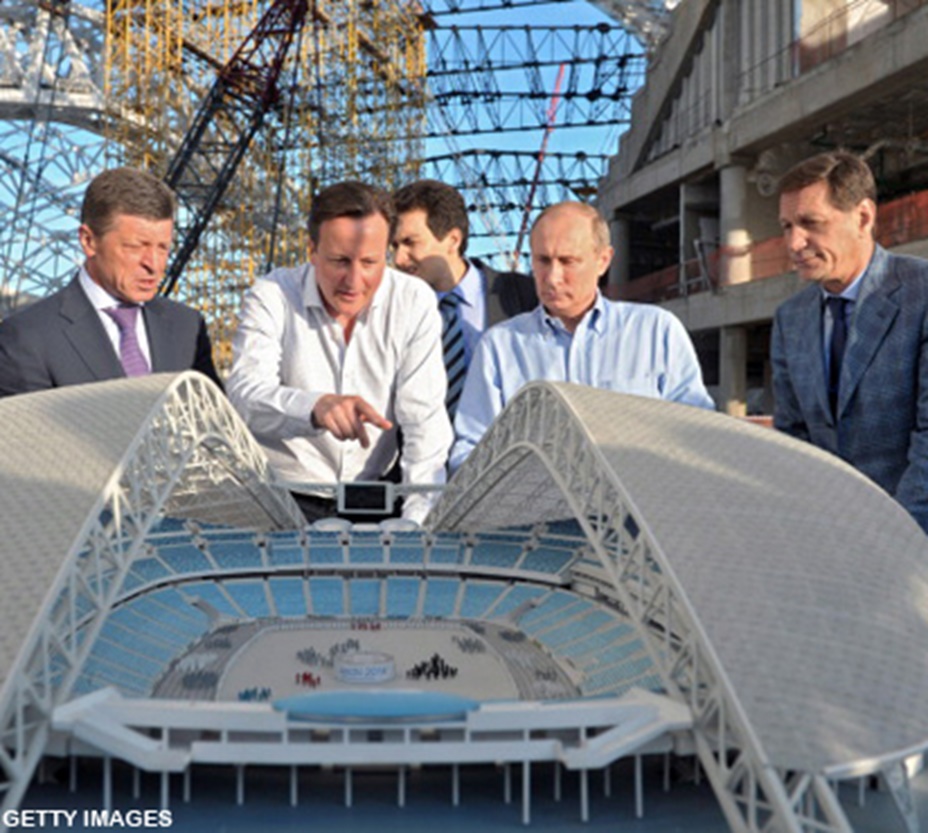The mountains of Sochi "are now home to Potanin's slope, Gazprom's gondola lift and Sberbank's ski jump," according to Nataliya Vasilyeva of the AP. The nicknames used by locals and an army of construction workers "leave no doubt about who is paying for the 2014 Winter Games: Russia's business powerhouses." Countries that have hosted the Olympics "have overwhelmingly used public funds to pay for the construction." The Russian government, however, "has gotten state-controlled companies and tycoons to foot more than half of the bill," which now stands at $51B and makes the Sochi Games "by far the most expensive Olympics in history." In contrast, the much-larger 2012 London Olympics cost about $14.3B, and the 2008 Beijing Games cost about $40B. For Russian President Vladimir Putin, the games "have been a matter of pride." Former Russian PM Mikhail Kasyanov described the tycoons' participation as "a sort of tax imposed by the president." Kasyanov: "If you want to carry on doing business in Russia, here's the tax you need to pay -- the kind of a tax that he wants you to pay." This is "particularly true" of those like metals tycoons Vladimir Potanin and Oleg Deripaska, who made their fortunes in the "rags-to-riches privatizations after the 1991 collapse of the Soviet Union." Most of the projects the tycoons are involved in "are not profitable" -- and many businessmen "are making no secret of the losses they are incurring." However, anyone who does business in Russia today is "acutely aware of the importance of maintaining good relations with the government -- and especially with Putin." The tycoons and state-owned companies "dismiss claims" that they were pressured to invest in Sochi or that they did so "in exchange for promises of preferential treatment." Gazprom, the world's largest natural gas producer and a publicly traded company, said in a written statement its work in Sochi is "both a business project and serious social responsibility." Deripaska's investment vehicle Basic Element Deputy General Dir Andrei Elinson insists that its Sochi projects "were all designed to be profitable." Elinson: "We are a strategic investor in the area. We believe in the development of the area on the whole" (AP, 5/20).




